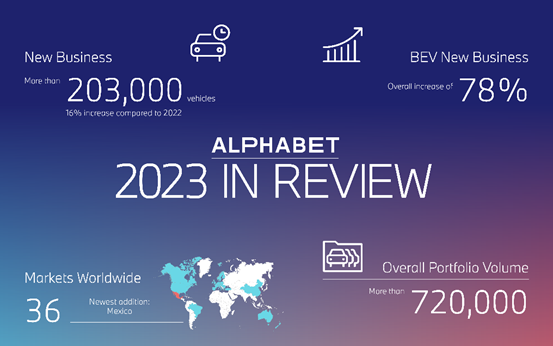
Instances of fraud are on the increase, so counter-fraud measures are more important to businesses than ever, says Tony Machin, CEO at TrustID and chair of the Association of Document Validation Professionals (ADVP).
As inflation soars and the cost-of-living crisis puts a squeeze on household finances, fraud, money laundering and other financial crimes are on the rise, according to Cifas, the UK’s fraud prevention community.
Cases reported to the National Fraud Database in the first nine months of 2022 were up 17% on the previous year. This increase was mainly driven by a rise in false application and identity fraud, up by 45% and 34%, respectively, according to a recent report by Cifas.
Regulated businesses have to make effective Know Your Customer (KYC) checks and comply with anti-money laundering (AML) guidance to guard against fraud, money laundering and corruption. This includes accountants, financial service businesses, estate agents, solicitors and financial institutions that issue loans. It also concerns high-value retailers as items such as luxury cars and boats can be bought and turned into cash to launder money.
Where legislation clashes with customer experience
While costly, fraud actually occurs in a relatively small percentage of transactions. Challenges arise where the stakes are high, both in terms of monetary value and the risk to a company’s reputation for customer service.
This can occur when a high-value dealer or financial institution wants to transact with a client but has to carry out what might seem like intrusive or lengthy checks. In competitive environments, exemplary customer experience is often a key differentiator.
How well do you really know your competitors?
Access the most comprehensive Company Profiles on the market, powered by GlobalData. Save hours of research. Gain competitive edge.

Thank you!
Your download email will arrive shortly
Not ready to buy yet? Download a free sample
We are confident about the unique quality of our Company Profiles. However, we want you to make the most beneficial decision for your business, so we offer a free sample that you can download by submitting the below form
By GlobalDataTake, for example, a prestige car dealership where a customer is ready to part with tens of thousands of pounds to buy a new vehicle or take up a significant financial package. AML legislation says the dealer has to carry out due diligence, but they don’t want to offend or create unnecessary delays that will compromise the effort and money that has already been invested in the customer experience.
Frictionless checks improve customer experience
Know Your Customer checks can be performed smoothly using automated KYC services, like the one offered by TrustID, without compromising on customer experience. The identity verification service validates the identity of the purchaser either in-person in the showroom or remotely via a link sent by email.
In the showroom, the salesperson can use a mobile device to photograph a customer’s ID document, such as a passport, driving licence or international ID card. If the sale is being finalised away from the showroom, an email containing a one-time access link allows the customer to upload an ID and ‘selfie’ image themselves. As the service is web-based, neither the customer nor the dealer has to download anything. The images are uploaded to be validated automatically or, if necessary, transferred to a team of document analysts for manual checking. The additional human intervention provides an extra level of protection for the dealer.
The ID technology includes document authentication services and biometric facial matching technology, which confirms the likeness between the photo ID and the selfie and includes AI and liveness checks to prevent photo manipulation fraud. The TrustID service is also linked to the national fraud database of known fraudulent documents and fraudulently obtained genuine documents. This presents a further flag if the document has been previously reported.
Mark Pendlebury, Business Development Director at TrustID said: “Our automotive clients’ confidence in TrustID to improve security and reduce potential fraud through our ID validation service is based on a combination of the simplicity of our workflow and the strength of our technology, underpinned by our best-in-class human expertise.”
Preventing loan and mortgage fraud
A high level of security and assurance is required by financial institutions. Cifas reported a surge in false applications for mortgages, loan products and other services during the past year.
Tim Wheeldon, Chief Operating Officer at Fluent Money, a TrustID customer, said: “As the leading second charge distributor in the UK, we have a real responsibility not only to our intermediaries but also to our lenders to ensure that our service is not only the best, but that we are doing everything in our power to protect all of our partners from the increasingly pernicious threat of fraud.”
Document scanning solutions can be used to authenticate both the visible and hidden security features on ID documents to ensure the applicant is who they say they are. The document scanners read the printed information on the face of the documents provided and compare chip and machine-readable zone data within passports, driving licences, visas and other ID cards. They also take infrared scans of the documents. Within seconds a lender knows if the identity documentation is valid and can approve the finance with confidence.
Maeve Ward, Secured Lending Sales & Operations Director at Shawbrook Bank, said: “Fluent pride themselves in putting the customer first, and have invested time and money into embedding TrustID technology into their business, ensuring the journey to the customer is as streamlined as possible. This is just another step forward, focused around providing even greater compliance through what is already a very robust risk framework, reducing the exposure of fraud twofold, to them and the lender.”
Seamless integration
Embedding an effective ID validation service within the customer’s application or purchasing journey doesn’t necessarily involve compromising on the customer experience. TrustID’s approach is based on industry-leading technology and human expertise. Little wonder that some of the UK’s biggest and most prestigious brands have embedded ID validation technology into their processes to protect both their business and their reputation for excellent experiences.
Lombard joins Acquis Lumia in effort to fight UK fraud






